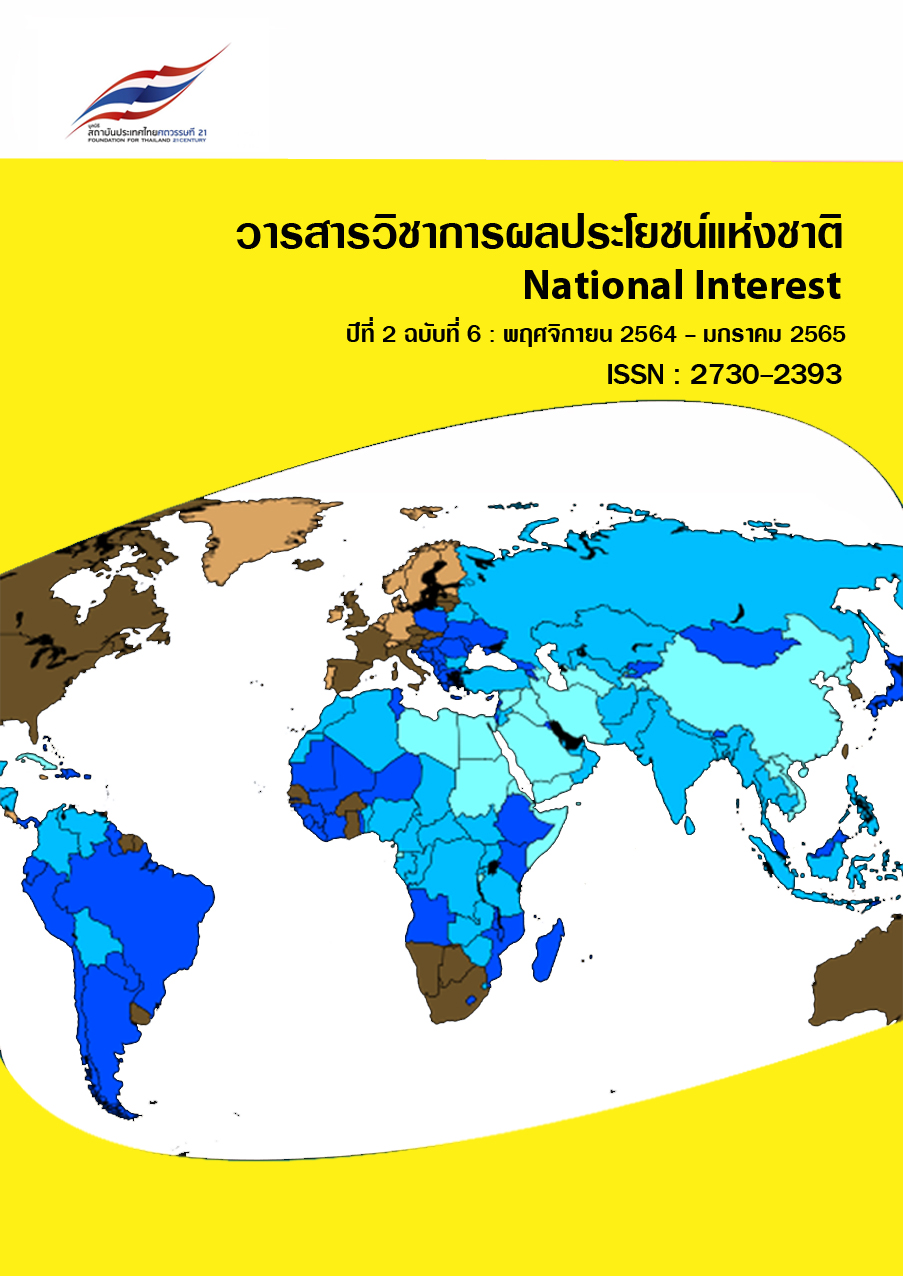Organizational Emperorship, the Nomenklatura System, and the Modern Party-State Exploring the Mechanisms of the Chinese Communist Party’s Enduring Control over Government of the Contemporary China
Main Article Content
Abstract
The present article outlines and analyzes the institutional and governance mechanisms currently applied by the Chinese Communist Party (CCP) in the context of ensuring the continuity and pervasiveness of its rule over the contemporary Chinese state and society. Based on the theoretical concepts of the Leninist party-state and organizational emperorship, it has been shown how a variety of such mechanisms have been empirically traceable across various levels of government in the contemporary China. In so doing, the article presents evidence as to the combination of the traditional Leninist party-state mechanisms with more nuanced forms of organizational emperorship on the part of the CCP. Furthermore, the author elaborates a conceptual framework for understanding the interrelationship between different levers of power available to the CCP in the contemporary context of the Chinese party-state, thereby contributing to a more holistic understanding of the subject matter.
Article Details

This work is licensed under a Creative Commons Attribution-NonCommercial-NoDerivatives 4.0 International License.
Thai Journal of National Interest Academic Journal under Creative Commons Attribution-NonCommercial-NoDerivatives 4.0 International License The journal allows access or distribution of academic work without charge or registration. To support the exchange of knowledge Scope covers academic work in geopolitics. Geoeconomics and Innovation
Users can share, copy and distribute all information published in National Interest Academic Journal in any form or medium subject to the following conditions:
Citation — Permission to use, reproduce, distribute, or modify the work. But credit must be given to the owner of the work. If the work is used without credit, the name of the owner of the work will be Must obtain permission from the owner of the work first.
Noncommercial — The work may be used, reproduced, distributed, or modified. However, the work or article may not be used for commercial purposes.
Cannot be modified — The work may be used, reproduced, and distributed. But do not modify the work. unless permission is received from the owner of the work first
References
Y. Zheng, The Chinese Communist Party as Organizational Emperor: Culture, Reproduction and Transformation. London: Routledge. 2010.
S. Koleva, Totalitarian Experience and Knowledge Production: Sociology in Central and Eastern Europe, 1945-1989. Leiden: Brill, 2018.
T.S. Molnar, The Decline of the Intellectual. New Brunswick, NJ: Transaction Publishers, 1994.
J.J. Kirkpatrick, The Withering Away of the Totalitarian State… and Other Surprises. Washington, D.C.: The AEA Press, 1990.
S.-C. Hsu, “A tale of two party-states: comparing authoritarianism across the Taiwan Strait”, In: G. Wu and H. Landsowne, eds., China’s Transition from Communism - New Perspectives. London: Routledge, 2016, pp. 58-79.
P.G. Lewis, Central Europe since 1945. London: Routledge, 2013.
P.B. Potter, From Leninist Discipline to Socialist Legalism: Peng Zhen on Law and Political Authority in the PRC. Stanford, CA: Stanford University Press, 2003.
J.P. Burns, ed., The Chinese Communist Party's Nomenklatura System. Armonk, NY: M. E. Sharpe, 1989.
M. Kesselmann, J. Krieger, and W.A. Joseph, Introduction to Comparative Politics, 3rd edition. Boston: Wadsworth, 2013.
R.S. Chaurasia, History of Modern China. New Delhi: Atlantic Publishers, 2004.
Y. Zheng, “The Party domination of the state”, In: K.E. Brodsgaard, ed., Critical Readings on the Chinese Communist Party, Volume 1. Leiden: Brill, 2014, pp. 249-278.
Z. Bo, “State power and governance structures”, In: C. Ogden, ed., Handbook of China’s Governance and Domestic Policies. London: Routledge, 2013, pp. 12-26.
S. Heilmann, L. Shih, and M. Stepan, “The cadre system and public administration”, In: S. Heilmann, ed., China’s Political System. Lanham, MD: Rowman & Littlefield, 2017, pp. 114-125.
H.S. Chan, “Cadre personnel management in China: the nomenklatura system, 1990-1998”, The China Quarterly, 2004, vol. 179, September, pp. 703-734.
A.L. Miller, “The CCP Central Committee’s Leading Small Groups”, China Leadership Monitor, no. 26, 2008. [Online]. Available: https://www.hoover.org/sites/default/files/uploads/documents/CLM26AM.pdf [Accessed on: November 14, 2021].
C.K. Johnson, S. Kennedy, and M. Qiu, “Xi’s signature governance innovation: the rise of Leading Small Groups”, Center for Strategic and International Studies, October 17, 2017. [Online]. Available: https://www.csis.org/analysis/xis-signature-governance-innovation-rise-leading-small-groups [Accessed on: November 14, 2021].
K. Lieberthal, “The organization of political power and its consequences: the view from inside”, In: K.E. Brodsgaard, ed., Critical Readings on the Chinese Communist Party, Volume 1. Leiden: Brill, 2014, pp.201-248.
Xinhua, “Wan Gang named minister of science and technology”, China Daily, April 27, 2007. [Online]. Available: http://www.chinadaily.com.cn/china/2007-04/27/content_861991.htm [Accessed on: November 14, 2021].
J. Tomm, “Village and township elections in China: elements of democratic governance”, On Politics, vol. 1, no. 2, 2006. [Online]. Available: https://journals.uvic.ca/index.php/onpolitics/article/view/561 [Accessed on: November 14, 2021].
M. Martinez-Bravo, G. Padro i Miguel, N. Qian, and Y. Yao. “The rise and fall of local elections in China: theory and empirical evidence on the autocrat's trade-off”, NBER Working Papers, Working Paper No. 24032. Washington, D.C.: National Bureau for Economic Research, 2017.
House of Commons Foreign Affairs Committee, East Asia: Seventh Report of Session 2005-06, Volume II. London: Hansard, 2006.


